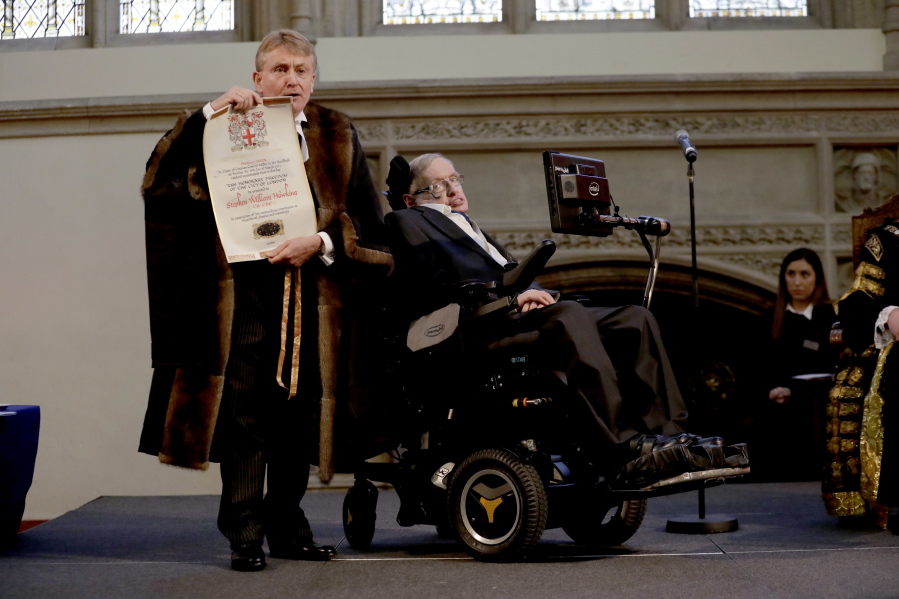WASHINGTON — Stephen Hawking won accolades from his peers for having one of the most brilliant minds in science, but he never got a Nobel Prize because no one has yet proven his ideas.
The Nobel committee looks for proof, not big ideas. Hawking was a deep thinker — a theorist — and his musings about black holes and cosmology have yet to get the lockdown evidence that accompanies the physics prizes, his fellow scientists said.
“The Nobel Prize is not given to the smartest person or even the one who makes the greatest contribution to science. It’s given to discovery,” said California Institute of Technology physicist Sean Carroll. “Hawking’s best theories have not yet been tested experimentally, which is why he hasn’t won a prize.”
Hawking has often been compared to Nobel laureate Albert Einstein, and he died on the 139th anniversary of Einstein’s birth. But Einstein’s Nobel wasn’t for his famed theory of general relativity. It was for describing the photoelectric effect, and only after it was verified by Robert Millikan, said Harvard astronomer Avi Loeb.
The theory behind gravitational waves — suggested by Einstein — didn’t win science’s highest honor until there were direct observations of the faint ripples in space and time. And Peter Higgs’ theory postulating the so-called “God particle” named the Higgs boson didn’t win its Nobel until the actual particle was discovered by a massive European particle collider.
“In all cases, there was an experiment-verified prediction,” Loeb said
Hawking’s greatest contribution — that not everything is sucked into a black hole, but some radiation known as “Hawking radiation” escapes — could be proven if astronomers find the right-sized black holes. Smaller black holes — those with the mass of an asteroid — likely would produce more Hawking radiation than larger ones, Loeb said.
“People have searched for mini black holes of this mass, but have so far not found any,” Hawking said in a 2016 lecture. “This is a pity because if they had, I would have got a Nobel Prize.”
Hawking lost another chance when an experiment at first seemed to find waves from inflation in the early universe that would also have confirmed Hawking radiation. But the observation didn’t quite hold up, Loeb said.
NASA astronomer and Nobel laureate John Mather said he doubted it would have changed Hawking’s life. Anyway, he said, “everyone loves Stephen’s work.”
A spokesman for Sweden’s Royal Academy of Sciences that hands out the physics Nobel said Hawking “was a great scientist who made considerable contributions to science.”
Spokesman Goran Hansson said the death of 76-year-old Hawking early Wednesday “is a loss for the world of science.” He declined to comment on whether Hawking should have been awarded the prestigious prize, in line with the Nobel policy.
Loeb said Hawking shows prizes may not be so important.
“I think his life journey shows there is much more than the Nobel Prize,” he said.



